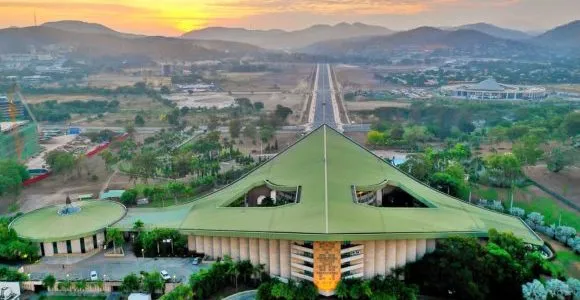What type of government do we have in PNG?

Papua New Guinea’s government is a constitutional parliamentary democracy with a structure that includes an executive branch led by the Prime Minister, a unicameral Parliament, an independent judiciary, and provincial and local governments. This system aims to balance power, ensure democratic governance, and address the needs of its diverse population.
Understanding Papua New Guinea’s Government Structure
Papua New Guinea (PNG) operates under a constitutional parliamentary democracy. This means that the country’s political system is characterized by a balance of power among different branches of government, with elected representatives making decisions on behalf of the people. Here’s an overview of the government structure, complete with statistics, facts, and references.
1. The Constitution
PNG’s Constitution, adopted in 1975, establishes the country’s legal framework. It was a crucial part of PNG’s transition to independence from Australia. The Constitution ensures democratic governance, the rule of law, and protection of fundamental rights.
- Reference: “Constitution of Papua New Guinea,” available from The National Parliament of Papua New Guinea.
2. Parliamentary System
Executive Branch
- Prime Minister: The Prime Minister is the head of government, appointed by the Parliament. As of August 2024, the current Prime Minister is James Marape, who assumed office in May 2019. The Prime Minister leads the Cabinet and is responsible for the overall administration of the government.
- Cabinet: The Cabinet consists of ministers selected by the Prime Minister. These ministers head various government departments and are responsible for policy implementation.
- Reference: “Prime Minister of Papua New Guinea,” Office of the Prime Minister.
Legislative Branch
- Parliament: PNG has a unicameral Parliament with 118 members elected from single-member districts. Members serve a five-year term. Parliament’s primary roles include making laws, debating national issues, and approving the budget.
- Election Statistics: The last general election was held in 2022. Voter turnout was approximately 70%, reflecting the active participation of PNG’s electorate.
- Reference: “Parliament of Papua New Guinea,” Parliament Website.
Judicial Branch
- Supreme Court: The highest court in PNG, responsible for interpreting the Constitution and making final decisions on legal matters. It ensures that laws comply with the Constitution.
- National Court: Handles most of the country’s legal disputes, including civil, criminal, and administrative cases.
- Reference: “Supreme Court of Papua New Guinea,” Supreme Court Website.
3. Provincial and Local Government
Provincial Government
- Provinces: PNG is divided into 22 provinces and one autonomous region, Bougainville. Each province has its own government structure, which includes a provincial governor and a provincial assembly.
- Reference: “List of Provinces and Districts,” National Statistical Office.
Local Government
- Local Councils: Local governments operate at the district and village levels. They handle local administration, community services, and development projects.
- Reference: “Local Government System in PNG,” Department of Provincial and Local Level Government.
4. Role of the Governor-General
- Governor-General: Represents the British monarch in PNG. The Governor-General performs ceremonial duties and formally appoints the Prime Minister. As of August 2024, the Governor-General is Sir Bob Dadae.
- Reference: “Governor-General of Papua New Guinea,” Governor-General’s Office.
5. Political Parties and Elections
- Political Parties: PNG has a multi-party system with several major parties. Key parties include the People’s National Congress, Pangu Party, and National Alliance Party.
- Elections: General elections are held every five years. The preferential voting system used allows voters to rank candidates, and the results reflect the overall preferences of the electorate.
- Election Statistics: In the 2022 elections, 118 MPs were elected, and voter turnout was about 70%.
- Reference: “Electoral Commission of Papua New Guinea,” Electoral Commission Website.
Summary
Papua New Guinea’s government structure is a constitutional parliamentary democracy, featuring a Prime Minister-led executive branch, a unicameral Parliament, and an independent judiciary. Provincial and local governments further decentralize administration, while the Governor-General represents ceremonial authority. With a multi-party system and regular elections, PNG aims to balance democratic governance with effective representation and administration.